The Thoracic Surgery Department of Nanoori Hospital is carrying out precise diagnosis and treatment of Pectus Carinatum, led by Director PARK, Hyung Joo (former professor of Thoracic Surgery, Seoul St. Mary's Hospital), a world-renowned authority on chest wall deformity treatment.
Chest wall deformities with a concave anterior chest
Pectus Excavatus is a congenital deformity in which the cartilage and part of the ribs that connect the breastbone are depressed. Sternal depression is often found immediately after birth, but sometimes pectus excavatum occurs during pubertal growth spurts. In Korea, it occurs in about 1 out of 1000 people, and it requires active treatment as not only aesthetic problems, but also depression in the breastbone can press the heart and lungs and cause functional disorders.
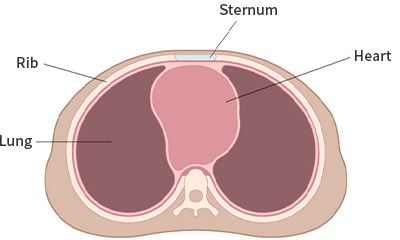
[Normal]
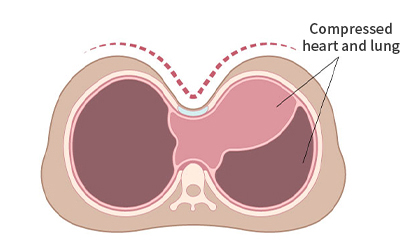
[Pectus Excavatum]
It occurs for a variety of causes, including congenital and genetic ones.
The depressed sternum and costal cartilage compress the heart and lungs, causing various symptoms
Depending on the part of the body that causes pain, the medical team conducts a physical examination after confirming through questions and answers whether there is a problem with the spine, joint, or brain.
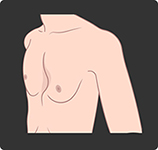
[Visual Diagnosis]
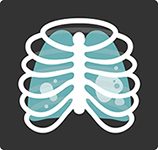
[Image Test]
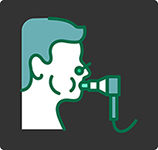
[Pulmonary Function Test]
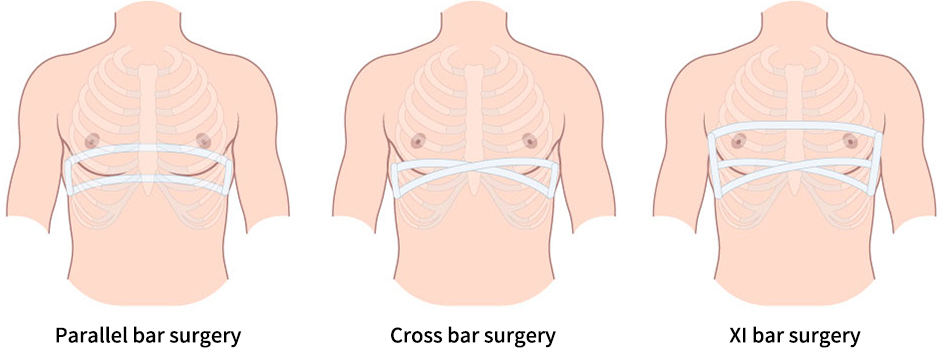
[Chest wall deformity correction surgery by Director PARK, Hyung Joo (Park’s Technique) ]
Dr. PARK, Hyung Joo developed a curved shape thoracoscope(Park's Pectoscope) which was specially designed for pectus surgery, allows mediastinal dissection with continuous contact view. In addition, cardiac damage is prevented at the source by completely showing the continuous contact view between the heart and the chest wall, which is difficult to see with a conventional thoracoscope.
